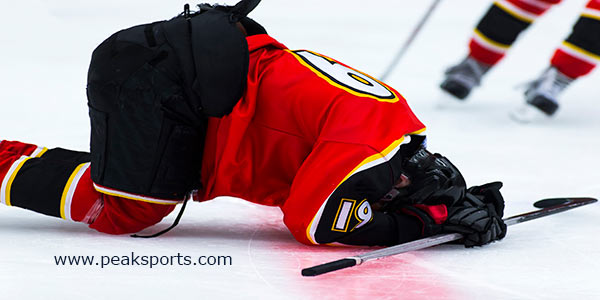
How Not to Get Frustrated with Losing
Are you an athlete who sees one loss as a failure? Or maybe after losing a game, you might feel dejected or lack motivation? Many athletes feel totally dejected after losing a game or competition. It makes no difference if they lost to a lower ranked opponent or the best athlete in the world….
Athletes often ask the following question about their mental game:
“How do I not get frustrated over mistakes or losses?”
All too often, athletes can become their own biggest critics, “I made too many mistakes today, I’m too slow, I can’t win against opponents who have a higher ranking.”
If you only focus on criticizing yourself for mistakes and losses, you are ignoring the parts of your game that were strong and positive. This self-critical behavior can impact your confidence and hurt your motivation during training and in future games.
If you measure success based on wins and losses, your confidence will roller coaster up and down. When you win, your confidence will be high. When you lose, your confidence will be low.
Through wins and losses, as an athlete, you should always find positive takeaways by evaluating your game objectively. This objective evaluation of a competition helps to instill confidence and keep you focused on your goals.
Focus on evaluating your game by seeing the larger picture. Every athlete wants to win, so losses can be difficult to face. In those moments, it is important to identify weaknesses you can work on. This will help you grow as an athlete to bot assess what you did well, in addition to thinking about growth.
How to Use an Objective Post-match Evaluation:
It is necessary to remain objective when focusing on improving your game. This objectivity puts your performance in perspective and keeps confidence stable. Dwelling on failures does not.
How do you assess your performance objectively? Begin by looking at numbers that are clear indicators of your performance. For example, look at your statistics for the game, such as the percentage of shots made from the field.
Just as importantly, you should be assessing your mental game in a way that avoids self-criticism. How well did you focus on one play at a time, for example? Did you let go of mistakes quickly? Did you visualize the plays?
After you assess your game, move on to growth and how you will improve in the next week of practice. Take a growth perspective instead of wallowing in your shortcomings.
Related Sports Psychology Articles
*Subscribe to The Sports Psychology Podcast on iTunes
*Subscribe to The Sports Psychology Podcast on Spotify
Download a free sports psychology report to improve your mental game!
Learn more about our one-on-one mental game coaching.
The Composed Athlete

“The Composed Athlete” is presented on 80-minute Audio Programs with a 70-page step-by-step workbook that guides you through the program each day. It’s a complete system for conditioning your mind to have maximum composure in competition.
“The Composed Athlete” was developed for any level coach, parent, or junior to professional athlete who wants to improve performance and gain a competitive edge. It does not matter if you are a fledgling junior athlete; or a seasoned professional, plagued with distractions; or you just wanting to learn how to improve your composure…
